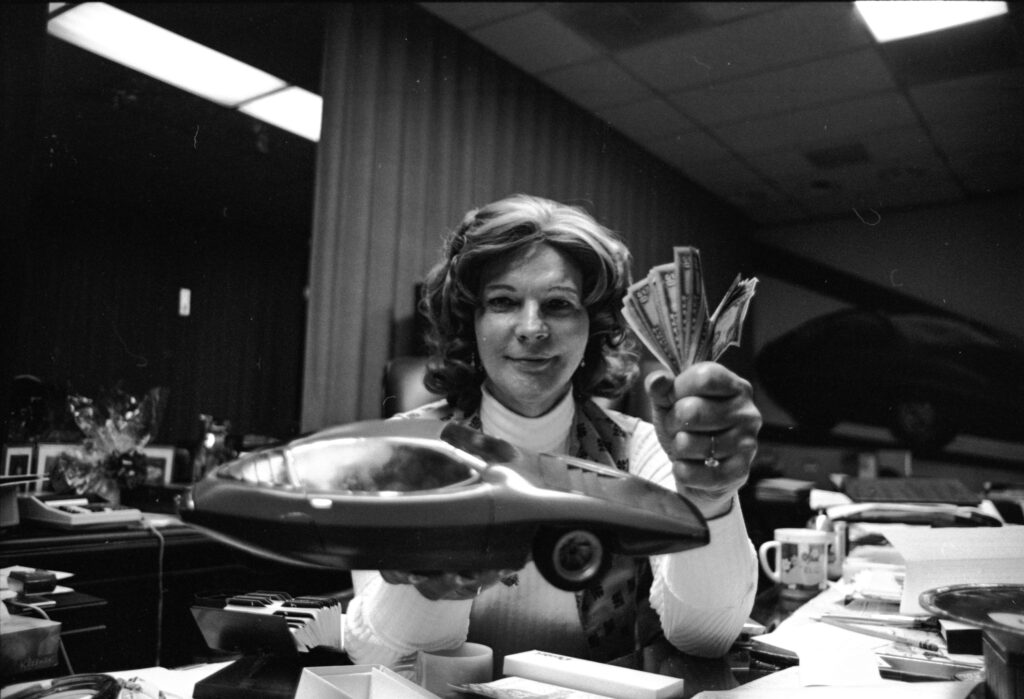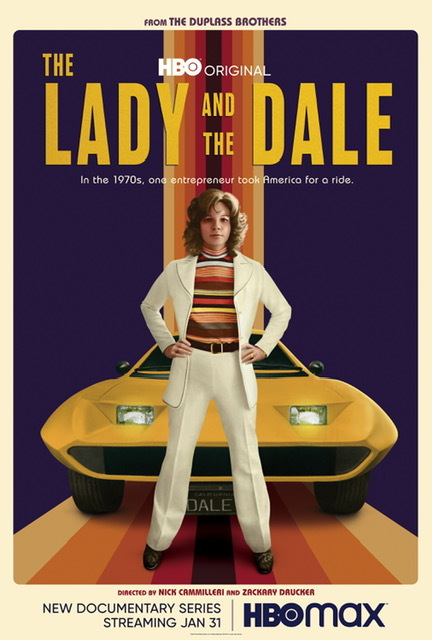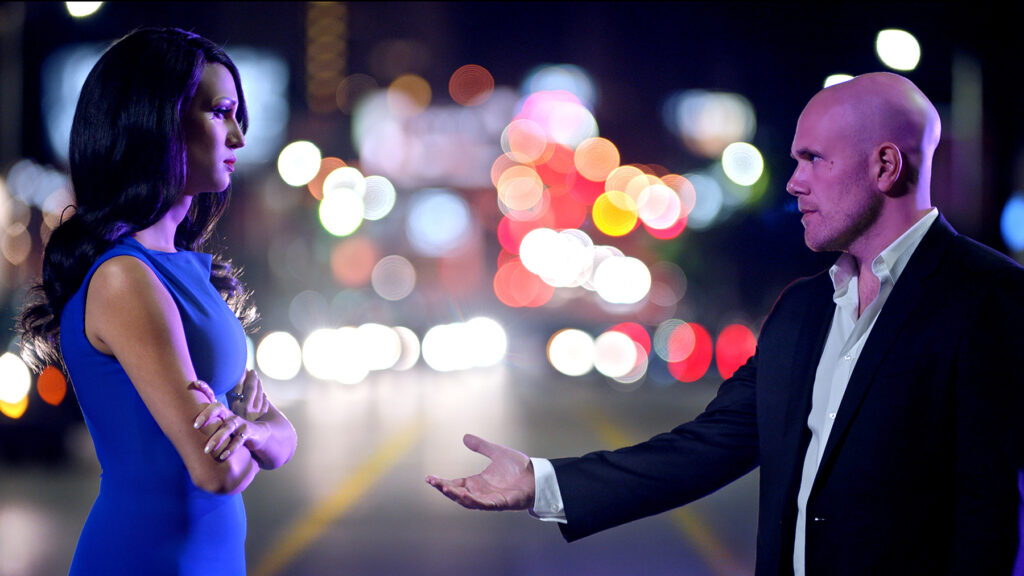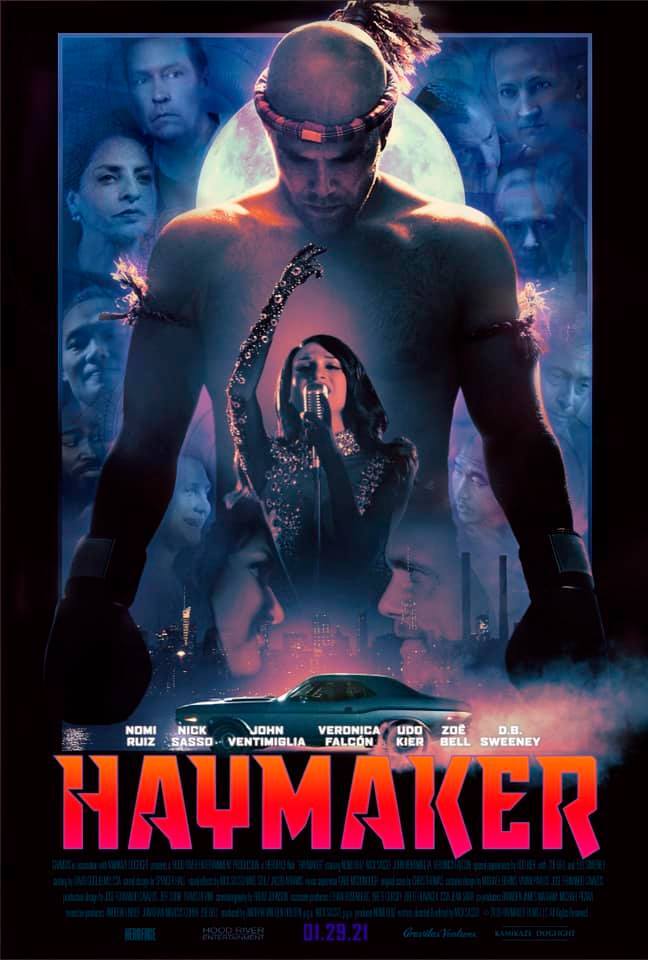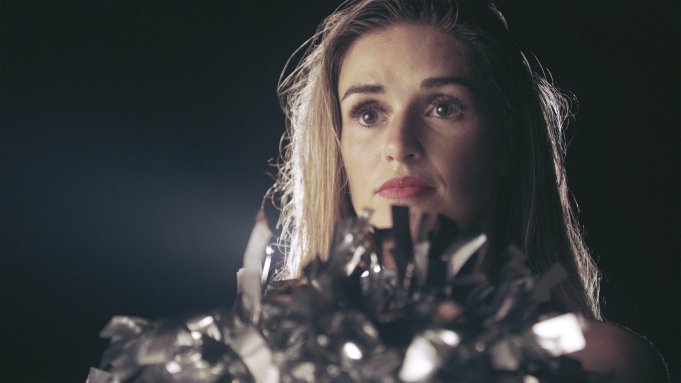It is no secret that the NFL is a big greedy leviathan, offering meager wages to the countless individuals who work to make the games happen at the parks across the country. There is an extra sense of disgusting robbery when it comes to many of the team’s cheerleading squads. While treated essentially as employees, many of the cheerleaders were forced to pay their own expenses while not even receiving a salary for much of the year.
The film A Woman’s Work hones in on two cheerleaders who sought legal recourse for this absurd abuse. Lacy, a cheerleader for the Oakland Raiderettes, and Maria, who danced for the Buffalo Jills, saw their dreams come true upon earning a coveted spot on their respective squads. Dance is in their blood, a dynamic that’s unfortunately at odds with their respective employers, a fact complicated by the fact that the teams would much rather classify them as independent contractors.
Lacy and Maria make for compelling protagonists. Neither appears to have wished for this kind of publicity, much of it negative, especially from alumnae of their organizations. Director Yu Gu spends much of the narrative focusing in on their personal lives. Both women are inspirational figures who had the courage to take on a billion dollar monopoly, bringing about real change in the process.
As far as the documentary goes though, A Women’s Work spends much of its 80 minutes following the two around as they go about their daily lives. Yu uses a lot of what’s essentially b-roll footage of them riding around on bikes, meandering sequences that add little to the narrative. At a certain point, you start to wonder why the film digging deeper into the systemic roots of this inequality.
There are several scenes with Lacy’s female-led legal team that provide a great explainer into her case. Even here, Yu includes some more b-roll footage of the lawyers flipping through legal books in a way that comes across almost like a commercial rather than a documentary. The various strands just don’t connect all that well.
This dynamic is exacerbated when it comes to Maria’s male-dominated legal staff, a much less impressive operation than Lacy’s. When pontificating over the recent 1.4 billion dollar sale of the Bills to new owner, Terry Pegula, one of Maria’s lawyers speculates as to the percentage of value that the Buffalo Jills added to the equation. He starts off at 1% before upping it to 5% and finally arriving at 10% as a suggested added value that the cheerleaders bring.
Following this logic uncritically, the film sort of accepts the premise that the Buffalo Jills may in fact possess a worth up to $1,400,000,000. The settlement that the Oakland Raiderettes received ended up being a little over $1,250,000, split 90 ways, a very small fraction of a very small fraction of that sum. That kind of disconnect encapsulates one of the biggest problems for the film as a whole, namely its emphasis on personality over the substance of the case at hand.
A Woman’s Work has a powerful story, but the film rarely tries to dig deeper than the obvious nature of the injustice. There are sequences where Yu shows the other side of the equation, namely former cheerleaders who see the lawsuits as a threat to their continued existence. This is a complex situation that the film rarely tries to engage with on a substantive level.
The NFL cheated a lot of women out of fair wages, on top of forcing them to essentially pay to be part of the team’s cheerleading squads. The whole situation is so disgusting and outrageous, a sentiment that can be arrived at without watching an eighty-minute-long feature. A Woman’s Work doesn’t do much to add to the blatantly obvious conclusion that any reasonable person would arrive at.





